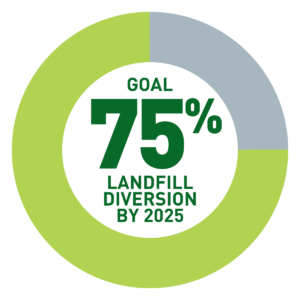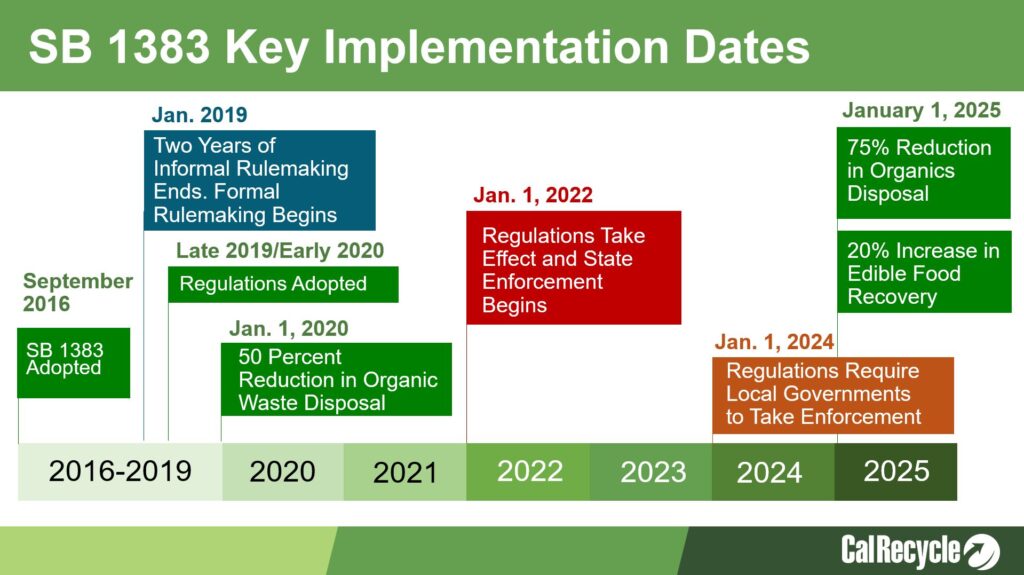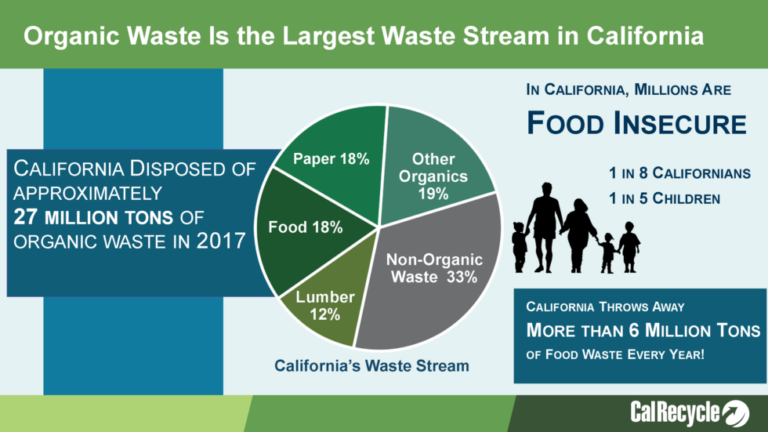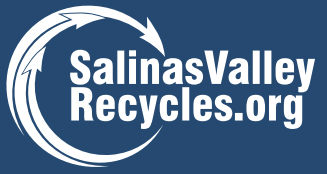CALIFORNIA SB 1383
SB 1383 Short-Lived Climate Pollutants (SLCP):
Organic Waste Methane Emissions Reductions


SB 1383 Short-Lived Climate Pollutants (SLCP):
- 50% percent reduction in the level of the statewide disposal of organic waste from the 2014 level by 2020
- 75% percent reduction in the level of the statewide disposal of organic waste from the 2014 level by 2025
- Not less than 20 percent of currently disposed edible food is recovered for human consumption by 2025.
Methane emissions resulting from the decomposition of organic waste in landfills are a significant source of greenhouse gas (GHG) emissions contributing to global climate change. Organic materials–including waste that can be readily prevented, recycled, or composted–account for a significant portion of California’s overall waste stream.
Food waste alone accounts for approximately 17-18 percent of total landfill disposal.
Increasing food waste prevention, encouraging edible food rescue, and expanding the composting and in-vessel digestion of organic waste throughout the state will help reduce methane emissions from organic waste disposed in California’s landfills. In addition, compost has numerous benefits including water conservation, improved soil health, and carbon sequestration. Food rescue has the added benefit of assisting Californians who are unable to secure adequate, healthy food by diverting edible food to food banks and pantries.


